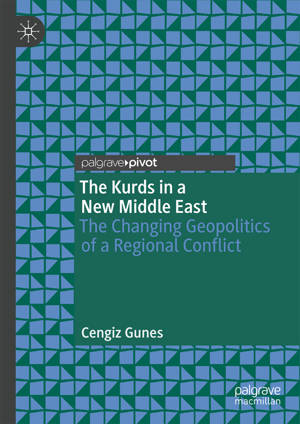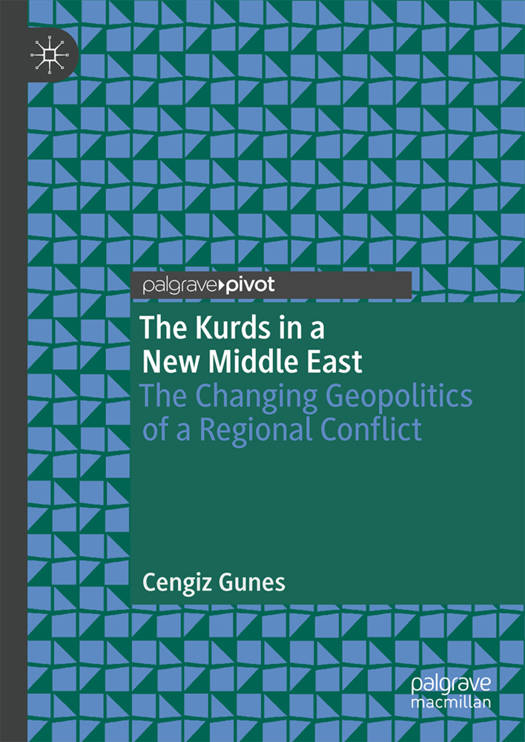
Door een staking bij bpost kan je online bestelling op dit moment iets langer onderweg zijn dan voorzien. Dringend iets nodig? Onze winkels ontvangen jou met open armen!
- Afhalen na 1 uur in een winkel met voorraad
- Gratis thuislevering in België vanaf € 30
- Ruim aanbod met 7 miljoen producten
Door een staking bij bpost kan je online bestelling op dit moment iets langer onderweg zijn dan voorzien. Dringend iets nodig? Onze winkels ontvangen jou met open armen!
- Afhalen na 1 uur in een winkel met voorraad
- Gratis thuislevering in België vanaf € 30
- Ruim aanbod met 7 miljoen producten
Zoeken
The Kurds in a New Middle East
The Changing Geopolitics of a Regional Conflict
Cengiz Gunes
Hardcover | Engels
€ 68,95
+ 137 punten
Omschrijving
This book examines the Kurds' rise as new regional actors in the Middle East and the impact this is having on the regional order. Kurdish political activism has reached a new height in the beginning of the 21st Century with Kurdish movements in Iraq, Turkey and Syria establishing themselves as a significant force in the domestic politics of these states. The consolidation of Kurdish autonomy in Iraq and the establishment of a Kurdish de facto autonomous region within Syria is adding to the Kurds' growing influence in the region and enabling Kurds to forge stronger relations with regional and international forces. The author analyses recent developments in the Kurdish question in Turkey, Iran, Iraq and Syria to understand the inter-connections and inter-dependencies that exist in the transnational Kurdish political space. The book's policy relevance is likely to attract strong interest from policy makers as well as from academics and students in the fields of Middle Eastern Politics andInternational Relations.
Specificaties
Betrokkenen
- Auteur(s):
- Uitgeverij:
Inhoud
- Aantal bladzijden:
- 124
- Taal:
- Engels
Eigenschappen
- Productcode (EAN):
- 9783030005382
- Verschijningsdatum:
- 11/10/2018
- Uitvoering:
- Hardcover
- Formaat:
- Genaaid
- Afmetingen:
- 148 mm x 210 mm
- Gewicht:
- 312 g

Alleen bij Standaard Boekhandel
+ 137 punten op je klantenkaart van Standaard Boekhandel
Beoordelingen
We publiceren alleen reviews die voldoen aan de voorwaarden voor reviews. Bekijk onze voorwaarden voor reviews.











